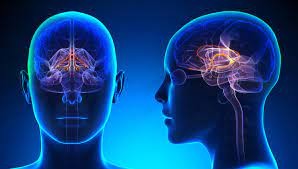No products
Balancing the Chemicals in Your Brain
Neurotransmitters are chemicals that move information from nerve cell to nerve cell. We get neurotransmitters from our food, the air we breathe and from other sources. When the levels of neurotransmitters are not balanced, our brain is out of balance. This can result in a wide variety of disorders including anxiety, depression, memory problems and mood swings. When you want to know how to Balancing the chemicals in your brain you need to understand how they work and what you can do to help maintain good levels.
Neuromotors are neurons that receive information from the nerve cell by way of chemical signals. Neuromotors control behavior and allow muscles to move to perform a task. Several neurotransmitters are produced by neurons and some play a more important role than others. Some of the most commonly used neurotransmitters are noradrenaline, dopamine, serotonin, GABA and nor epinephrine. Each one is responsible for different functions within the brain.
Neuramine is produced by the neurons and controls the transmission of impulses from one area of the brain to another. Dopamine is responsible for movement, and memory, while norepinephrine is responsible for calm and arousal. In order for the levels of neurotransmitters to be in balance, the levels of serotonin must be at appropriate levels. The levels of GABA must be at the right level also. Together, all of these neurotransmitters work together to help control our moods, appetite, sleeping and sexuality. They are essential for brain function and health.
As you get older, your brains activity and concentration changes. A natural decline in the production of neurotransmitters with age occurs. Over time, the chemicals in our brains begin to change, and as the levels of neurotransmitters decrease, mental function and/or the ability to think and reason decline.
One problem that develops as a result of this imbalance is Alzheimer's disease. With proper diet and exercise, you can keep the levels of chemicals in your brain up. You can also help to keep your brain functioning properly and reduce the effects of disease on your thinking. With these things in order, you can enjoy a much healthier mental state.
Keep in mind that the brain needs the right amount of neurotransmitters to stay healthy. If you are taking medication for some other condition, it is best not to medicate for any other condition. If you feel that you are doing the drugs for a reason, it may be to balance the chemicals in your brain. Taking some type of prescription medication can also have this effect on your neurotransmitters and keeping them at an appropriate level.
Exercise has been proven to help with Alzheimer's disease and other forms of mental problems. When you exercise, you stimulate the oxygen-making parts of your brain and improve your general health. This is important because when you exercise, your blood flow and oxygen levels are increased which can assist with any nutrient deficiencies or even disease prevention.
Balancing the chemicals in your brain can also help you to maintain a normal brain chemistry. With a good diet and exercise, you can keep your levels of neurotransmitters balanced. You can also help to avoid disease with a proper balance of nutrients. Nutrients are essential for keeping your brain and body healthy and functioning properly. If there are imbalances, your body will struggle to keep them balanced and can cause disease or poor health. These things can be avoided with a little bit of effort and time.
Balance can also be maintained through herbal remedies. Taking herbs such as Echinacea, Indian ginseng, and ginkgo biloba can balance your neurotransmitters and help you to stay on top of your nutrition. You can find herbal supplements containing these ingredients at most health food stores. Using herbal remedies for balancing your neurotransmitters and keeping your brain healthy can help you to live longer and better while avoiding the disease that affects so many of us.
Balancing the chemicals in your brain can be accomplished with the power of mind over matter. Yoga is a great form of exercise that requires your mind to think and concentrate. A daily practice of yoga is great for maintaining a healthy balance of chemicals in your brain and for disease prevention. It can help to slow down the progression of Alzheimer's disease and other nervous disorders. Since regular yoga practice can help your mood, appetite, blood pressure, and cholesterol levels, it can also help to control the spread of a disease.
Balancing the chemicals in your brain can also be achieved through proper sleep. When you get enough rest your body can heal itself from the stresses and illnesses that it has to go through throughout the day. A lack of rest not only makes you feel tired and run down, but it can weaken the connections that keep your brain working correctly. A poor diet and lack of exercise can also have a negative effect on your brain. A balanced diet and daily exercise can help to maintain a healthy brain which in turn will help you to lead a happy and disease free life.
Trusted Online Pharmacy https://stayhealthynow.co
References
https://www.psychologytoday.com/us/basics/circadian-rhythm
https://www.ncbi.nlm.nih.gov/pmc/articles/PMC3779905/
https://dana.org/article/neurotransmitters/
https://www.ncbi.nlm.nih.gov/pmc/articles/PMC6400842/
https://www.ncbi.nlm.nih.gov/pmc/articles/PMC6893818/
https://www.ncbi.nlm.nih.gov/pmc/articles/PMC8136391/
https://www.ncbi.nlm.nih.gov/books/NBK539894/
https://www.ncbi.nlm.nih.gov/pmc/articles/PMC3307240/
https://www.hindawi.com/journals/prt/2012/741746/
https://qbi.uq.edu.au/brain/brain-anatomy/what-neuron
https://qbi.uq.edu.au/brain/brain-physiology/what-are-neurotransmitters


Leave a comment